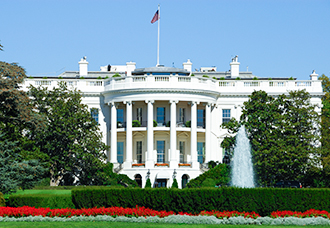
Trump Administration Changes
Any time there is a shift in Washington leadership, employment lawyers expect to see a number of changes in employment agency enforcement and proposed rules. Now that President Trump has completed his first year in office, here is a summary of his administration’s impact on employment law.
Health Care
Enacted in 2010, the Affordable Care Act was a hot topic during the 2016 campaign. May people expected that 2017 would be the year the Affordable Care Act came to an end. However, after several attempts to repeal, the law remains in place today, albeit with some attempted changes. In October 2017, the Trump administration announced changes to the Affordable Care Act’s federal mandate for insurance plans to provide contraceptive coverage. The new rules from the Trump administration provided an exemption from this mandate for businesses that have sincerely held religious beliefs or moral convictions against providing contraception. Since October 2017, two federal judges have granted nationwide temporary injunctions halting implementation of the new rules rolling back contraceptive coverage. Expect to see more on these federal cases in 2018.
EEOC Enforcement
Under the Trump administration, the Department of Justice has taken stances contrary to EEOC enforcement guidelines promulgated by the Obama administration. The primary target has been treatment of gender identification and sexual orientation as protected statuses under Title VII. During the Obama administration, the EEOC issued guidance classifying gender identification and sexual orientation as protected statuses under Title VII. That guidance still stands. However, the Department of Justice is now taking the position in court that Title VII does not protect gender identification and sexual orientation. Unless different EEOC guidance is issued, resolution of this dispute may rest with federal courts, which have reached different conclusions on this issue throughout the country.
The most recent news from the EEOC is recently proposed enforcement guidance on sexual harassment, which according to the agency, remains a significant part of its caseload. The agency is taking input on the proposal until February 9, 2018. Martin Pringle attorneys will be reviewing these changes with employers at its seminar on March 1, 2018. Until then, you can review the proposal here.
Department of Labor Enforcement
The end of 2016 was a series of starts and stops for overtime changes as employers prepared for significant changes to overtime classification only to see federal courts do away with the changes shortly before they were to go into effect. As of now, the “old” overtime rules are in place. However, in the summer of 2017, the Department of Labor issued a Request for Information geared toward examining overtime classification. According to the DOL, the RFI asked for feedback on a number of overtime factors, including the salary test and the duties test. The comment period ended in September 2017. The DOL uses feedback from RFIs to determine if new or different rules or regulations are needed. Expect to see another attempt to change overtime soon.
National Labor Relations Board
The end of 2017 saw expected sweeping changes hit this agency. The largest of which was a change in the “joint employment” standard from a 2015 NLRB decision, Browning-Ferris Industries, 362 NLRB No. 186 (2015). In Browning-Ferris, the NLRB said employers with “indirect control” of employees could be responsible for National Labor Relations Act violations. Now, the board has reversed its decision and reinstated a standard where only employers with “direct and immediate” control can be found liable for NLRA violations. This decision has a large impact on employers operating in a franchise model.